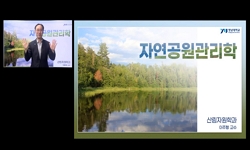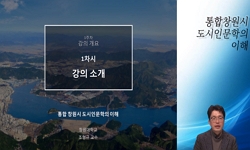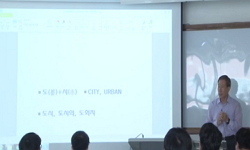Before becoming a poet, Walt Whitman as a journalist invariably asserts the importance of “more parks—more open places” in the city. Through lots of articles and editorials in nineteenth century newspapers such as New York Aurora, Brooklyn Daily...
http://chineseinput.net/에서 pinyin(병음)방식으로 중국어를 변환할 수 있습니다.
변환된 중국어를 복사하여 사용하시면 됩니다.
- 中文 을 입력하시려면 zhongwen을 입력하시고 space를누르시면됩니다.
- 北京 을 입력하시려면 beijing을 입력하시고 space를 누르시면 됩니다.
https://www.riss.kr/link?id=A104032691
-
저자
심진호 (신라대학교)
- 발행기관
- 학술지명
- 권호사항
-
발행연도
2014
-
작성언어
Korean
-
주제어
Walt Whitman ; city ; park ; “open place” ; Frederick Law Olmsted ; Bernard Tschumi ; La Villette Park ; 휘트먼 ; 도시 ; 공원 ; “열린 장소” ; 옴스테드 ; 츄미 ; 라 빌레뜨 파크
-
등재정보
KCI등재
-
자료형태
학술저널
- 발행기관 URL
-
수록면
309-330(22쪽)
-
KCI 피인용횟수
0
- 제공처
-
0
상세조회 -
0
다운로드
부가정보
다국어 초록 (Multilingual Abstract)
Before becoming a poet, Walt Whitman as a journalist invariably asserts the importance of “more parks—more open places” in the city. Through lots of articles and editorials in nineteenth century newspapers such as New York Aurora, Brooklyn Daily Eagle, Whitman strongly criticizes unequal and thoughtless city planning. Whitman believes that Central Park, which is synonymous with nineteenth century park, would not be a “open place” with the general public because it uses only for the privileged class. His sharp insight on the “open place” surpasses his contemporary landscape architect Frederick Law Olmsted's perspective. Whitman's vision suggesting the urban park of social contacts and cultural exchanges transcends the limit of Olmsted's dichotomous thinking of civilization versus nature, park versus the city.
Most of all, the “open place” Whitman desires to embody resists Olmsted's statement that “in the park, the city is not supposed to exist.” Whitman's “open place” corresponds with a modern urban park like La Villette Park by Bernard Tschumi as it suggests the indivisible interaction between park and the city. La Villette Park based on Tschumi's aesthetics of de-constructivist architecture aims at a new model in which programme, people's activity and events all play integral roles. This new model has an intimate relationship with Whitman's concept of a “programme of culture.” In this sense, La Villette Park is the modern transformation of Whitman's vision which emphasizes a “programme of culture” suggestive of twenty-first century cultural park. Whitman's “open place” moving toward the sustainable city facilitates interdisciplinary approaches, transcending time and genres.
국문 초록 (Abstract)
휘트먼은 시인이 되기 전부터 저널리스트로 활동하며 도시에서 “더 많은 공원—더 많은 열린 장소”의 중요성을 지속적으로 역설했다. 『뉴욕 오로라』, 『브루클린 데일리 이글』 등 여...
휘트먼은 시인이 되기 전부터 저널리스트로 활동하며 도시에서 “더 많은 공원—더 많은 열린 장소”의 중요성을 지속적으로 역설했다. 『뉴욕 오로라』, 『브루클린 데일리 이글』 등 여러 신문의 사설을 통해 휘트먼은 불평등하고 무분별한 도시계획에 대해 신랄하게 비판했다. 19세기 근대 공원의 대명사로 간주되는 센트럴 파크가 “대중과 함께”하는 “열린 장소”가 아니라 “장식”으로 가득한 상류층만을 위한 공간이라는 휘트먼의 예리한 통찰은 동시대 조경가인 옴스테드의 한계를 초월하고 있다. 사회적 접촉, 문화적 교류를 제공하는 도시 공원의 필요성을 강조한 휘트먼의 비전은 문명과 자연, 도시와 공원이라는 옴스테드식 이분법적 구도를 뛰어넘고 있다.
휘트먼이 구현하고자 했던 “열린 장소”는 “공원에서 도시는 존재해서는 안된다”라는 옴스테드의 이분법적 시각을 뛰어넘어 자연뿐만 아니라 문화가 살아있는 21세기 도시 공원을 강하게 연상시킨다. 요컨대 휘트먼의 “열린 장소”는 해체주의 건축 미학의 정수인 츄미의 라 빌레뜨 파크에 더욱 부합하고 있다. 츄미는 근대 건축에서 상실되었던 프로그램, 사람들의 행위 및 이벤트 등을 역설하고 있는데, 이것은 휘트먼이 언급한 “문화 프로그램”으로 충만한 “열린 장소”의 현대적 변용이라 할 수 있다. 도시 공원을 열린 대중 문화공간으로 간주하고 있는 휘트먼의 탈근대적 비전은 건축과 조경뿐 아니라 문학, 철학, 미술, 영화 등 다양한 장르의 경계를 무너뜨리며 상호텍스트적 연구를 촉진시키는 원동력이 되고 있다.
참고문헌 (Reference)
1 견진현, "파리시의 현대공원에 나타난 도심공원의 새로운 역할에 관한 고찰 : 라 빌레뜨 공원을 중심으로" 한국프랑스문화학회 (25) : 5-28, 2012
2 이은경, "렘 콜하스와 베르나르 츄미 건축에 나타나는 프로그램 해석에 관한 연구" 서울대학교 대학원 2001
3 김도경, "도시 내 대규모 공원설계의 건축적 해석- 베르나르 츄미와 렘 콜하스의 라 빌레뜨 국제현상 설계안을 중심으로" 한국도시설계학회 8 (8): 57-66, 2007
4 심진호, "“민주적” 공간: 월트 휘트먼과 랜드스케이프 건축 미학" 한국중앙영어영문학회 56 (56): 221-240, 2014
5 Traubel, Horace, "With Walt Whitman in Camden. vol. 3" Rowman and Littlefield 1961
6 Whitman, Walt, "The Journalism, vol. 1" Peter Lang 1998
7 Whitman, Walt, "Specimen Days and Collect" Dover Publications 1995
8 Machor, James L., "Pastoral Cities: Urban Ideals and the Symbolic Landscape of America" U of Wisconsin P 1987
9 Weingarden, Lauren, "Naturalized Technology: Louis H. Sullivan's Whitmanesque Skyscrapers" 30 (30): 480-495, 1986
10 Whitman, Walt, "Leaves of Grass" W. W. Norton & Company 1973
1 견진현, "파리시의 현대공원에 나타난 도심공원의 새로운 역할에 관한 고찰 : 라 빌레뜨 공원을 중심으로" 한국프랑스문화학회 (25) : 5-28, 2012
2 이은경, "렘 콜하스와 베르나르 츄미 건축에 나타나는 프로그램 해석에 관한 연구" 서울대학교 대학원 2001
3 김도경, "도시 내 대규모 공원설계의 건축적 해석- 베르나르 츄미와 렘 콜하스의 라 빌레뜨 국제현상 설계안을 중심으로" 한국도시설계학회 8 (8): 57-66, 2007
4 심진호, "“민주적” 공간: 월트 휘트먼과 랜드스케이프 건축 미학" 한국중앙영어영문학회 56 (56): 221-240, 2014
5 Traubel, Horace, "With Walt Whitman in Camden. vol. 3" Rowman and Littlefield 1961
6 Whitman, Walt, "The Journalism, vol. 1" Peter Lang 1998
7 Whitman, Walt, "Specimen Days and Collect" Dover Publications 1995
8 Machor, James L., "Pastoral Cities: Urban Ideals and the Symbolic Landscape of America" U of Wisconsin P 1987
9 Weingarden, Lauren, "Naturalized Technology: Louis H. Sullivan's Whitmanesque Skyscrapers" 30 (30): 480-495, 1986
10 Whitman, Walt, "Leaves of Grass" W. W. Norton & Company 1973
11 Holloway, Emory, "I Sit and Look Out: Editorials from the Brooklyn Daily Times by Walt Whitman" Columbia UP 1932
12 Martin, Justin, "Genius of Place: The Life of Frederick Law Olmsted" Da Capo P 2011
13 Beveridge, Charles, "Frederick Law Olmsted: Designing the American Landscape" Rizzoli 1995
14 Murphy, Joseph C., "Distant Effects: Whitman, Olmsted, and the American Landscape" 17/18 : 1-13, 2005
15 Whitman, Walt, "Democratic Vistas" BiblioBazaar 2009
16 Roche, John F., "Democratic Space: The Ecstatic Geography of Walt Whitman and Frank Lloyd Wright" 6 (6): 16-32, 1988
17 Tschumi, Bernard, "Architecture and Disjunction" The MIT P 1996
18 Tschumi, Bernard, "An Urban Park for the 21st Century" 10 (10): 27-30, 1983
19 Pannapacker, William, "A Companion to Walt Whitman" Blackwell Publishing 42-59, 2006
동일학술지(권/호) 다른 논문
-
한국사상(韓國思想)사학(史學) : 추포(秋浦) 황신(黃愼)의 대일인식
- 한국사상문화학회
- 방기철 ( Ki Cheol Bang )
- 2014
- KCI등재
-
한국사상(韓國思想)사학(史學) : 조선시대 성균관 유생의 서치순과 방차순 논란
- 한국사상문화학회
- 장재천 ( Jae Cheon Chang )
- 2014
- KCI등재
-
한국사상(韓國思想)철학(哲學) : 포박자(抱朴子)』외편(外篇)에 나타난 갈홍(葛洪)의 기호성적(嗜好性的) 은일관(隱逸觀)
- 한국사상문화학회
- 조민환 ( Min Huan Jo )
- 2014
- KCI등재
-
한국사상(韓國思想)철학(哲學) : 우리 고유의 국학(國學)을 계승한 공자의 효사상과 인성교육의 정향(Ⅰ)
- 한국사상문화학회
- 김익수 ( Ir Soo Kim )
- 2014
- KCI등재
분석정보
인용정보 인용지수 설명보기
학술지 이력
| 연월일 | 이력구분 | 이력상세 | 등재구분 |
|---|---|---|---|
| 2020 | 평가예정 | 신규평가 신청대상 (신규평가) | |
| 2019-12-01 | 평가 | 등재후보 탈락 (계속평가) | |
| 2018-01-01 | 평가 | 등재후보학술지 유지 (계속평가) |  |
| 2017-12-01 | 평가 | 등재후보로 하락 (계속평가) |  |
| 2013-01-01 | 평가 | 등재학술지 유지 (등재유지) |  |
| 2010-01-01 | 평가 | 등재 1차 FAIL (등재유지) |  |
| 2008-01-01 | 평가 | 등재학술지 유지 (등재유지) |  |
| 2005-01-01 | 평가 | 등재학술지 선정 (등재후보2차) |  |
| 2004-01-01 | 평가 | 등재후보 1차 PASS (등재후보1차) |  |
| 2003-01-01 | 평가 | 등재후보학술지 유지 () |  |
| 2001-07-01 | 평가 | 등재후보학술지 선정 (신규평가) |  |
학술지 인용정보
| 기준연도 | WOS-KCI 통합IF(2년) | KCIF(2년) | KCIF(3년) |
|---|---|---|---|
| 2016 | 0.44 | 0.44 | 0.41 |
| KCIF(4년) | KCIF(5년) | 중심성지수(3년) | 즉시성지수 |
| 0.38 | 0.38 | 0.811 | 0.06 |




 KCI
KCI






